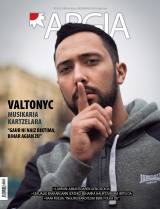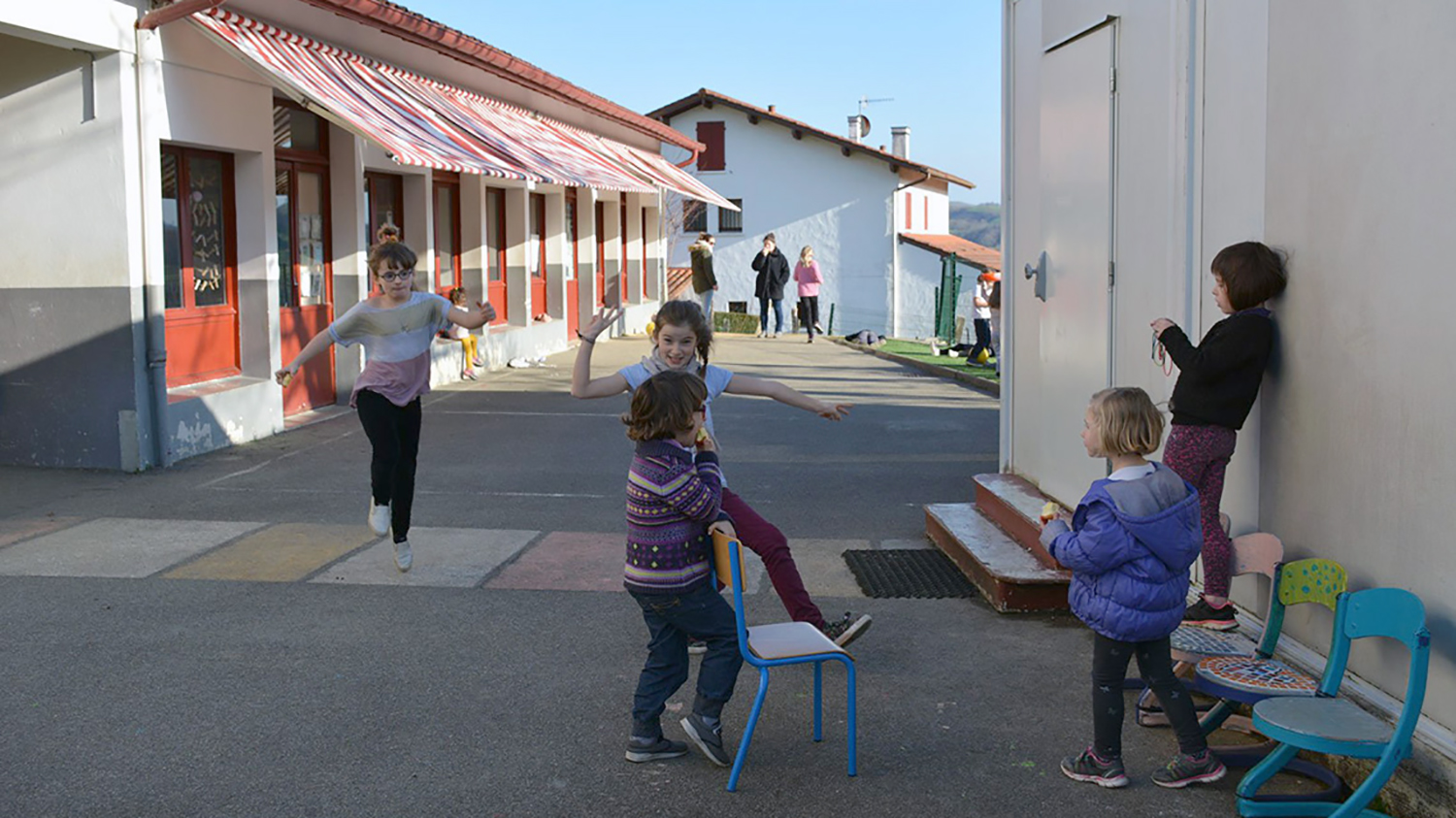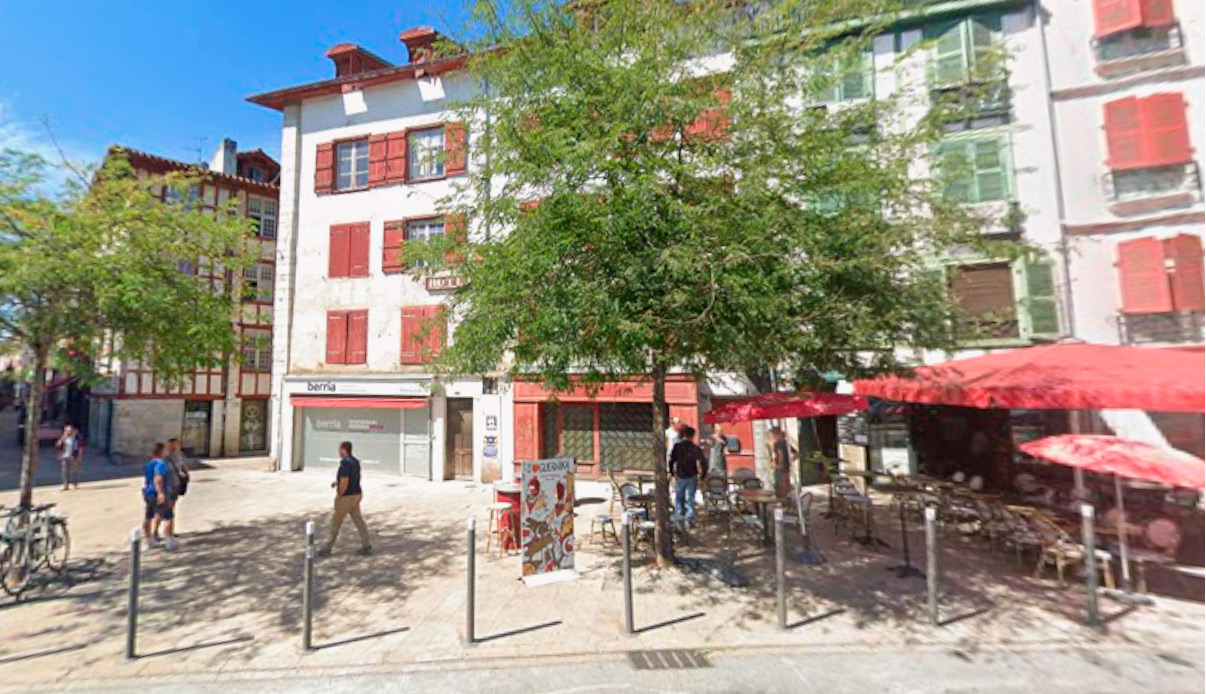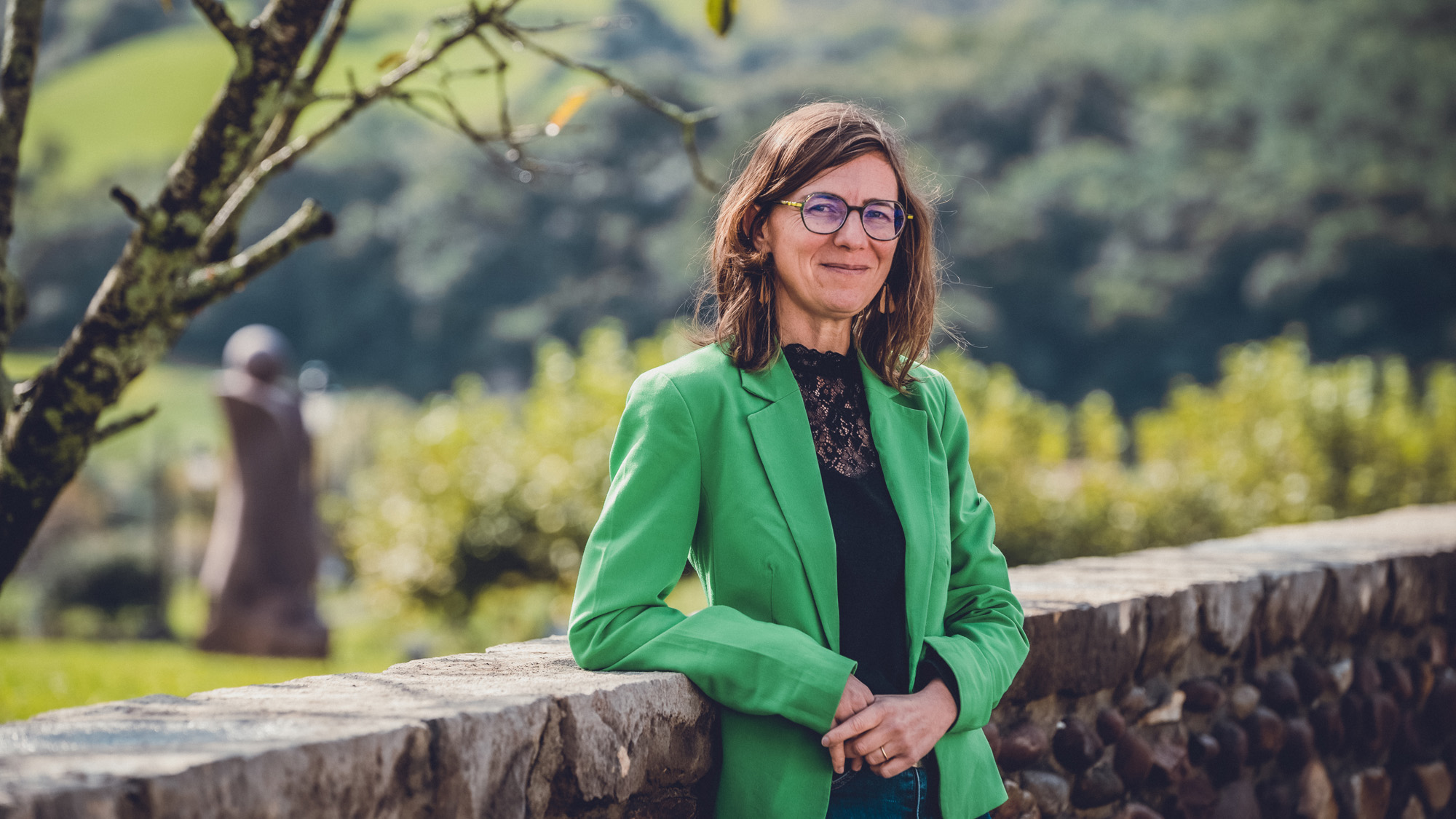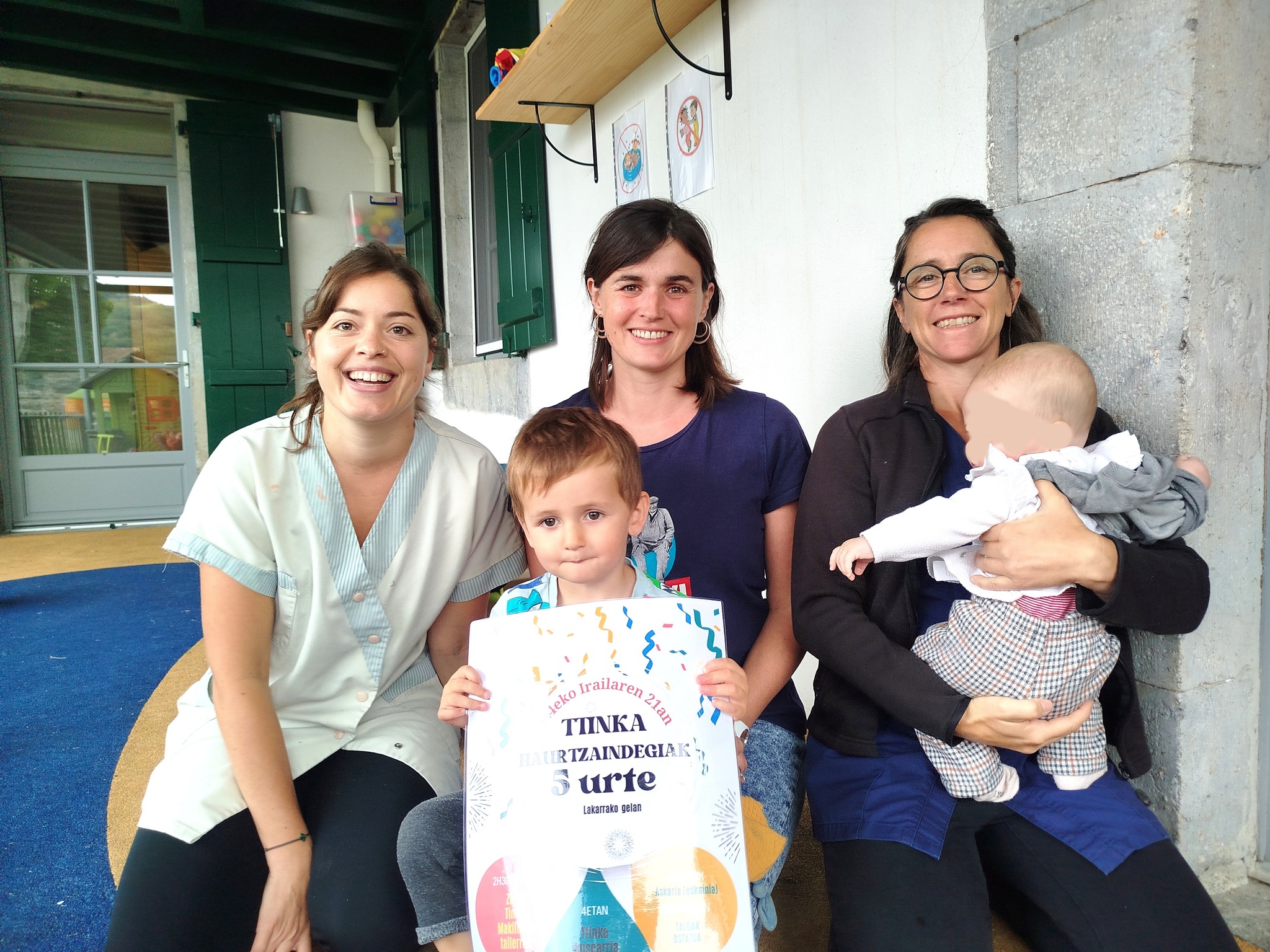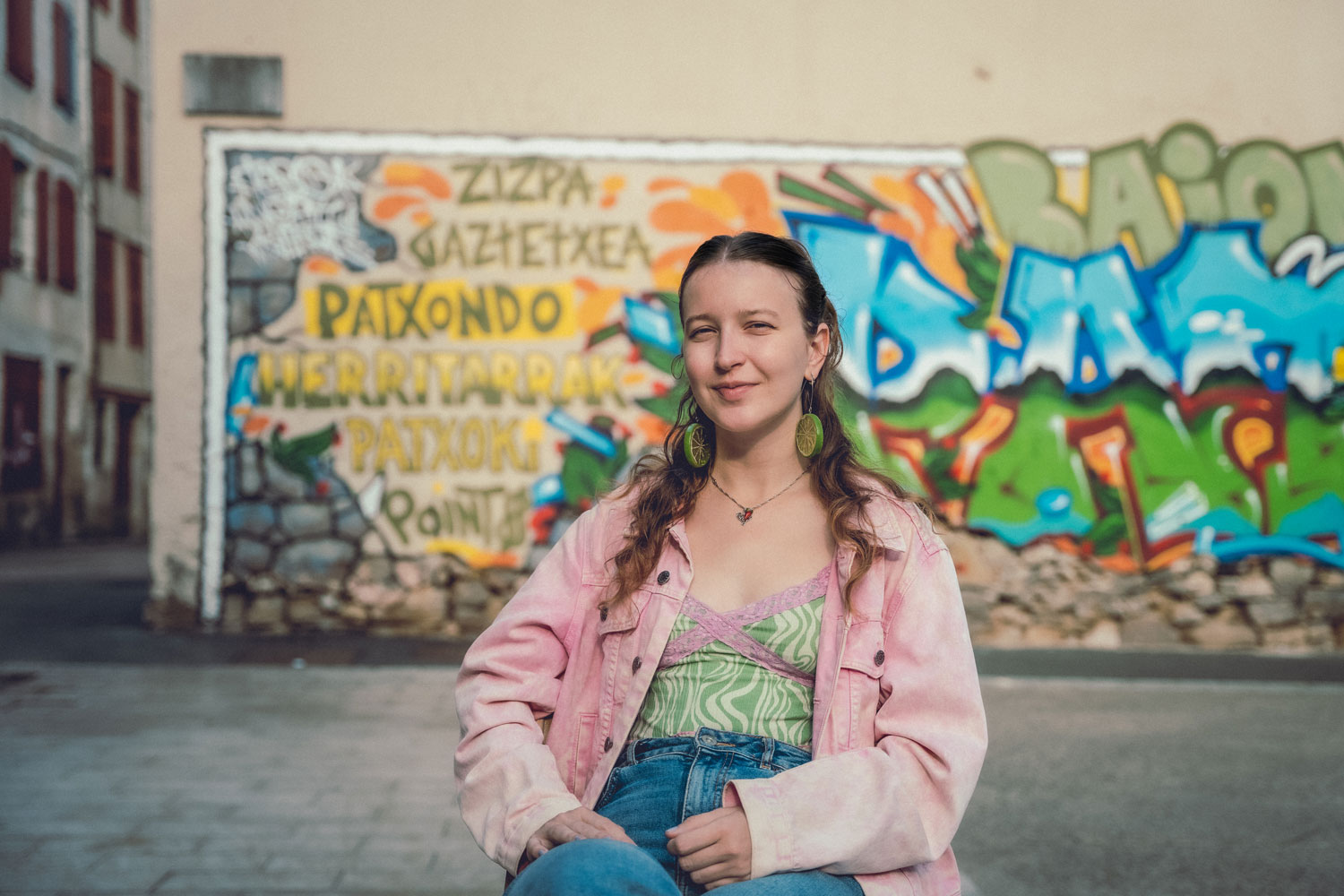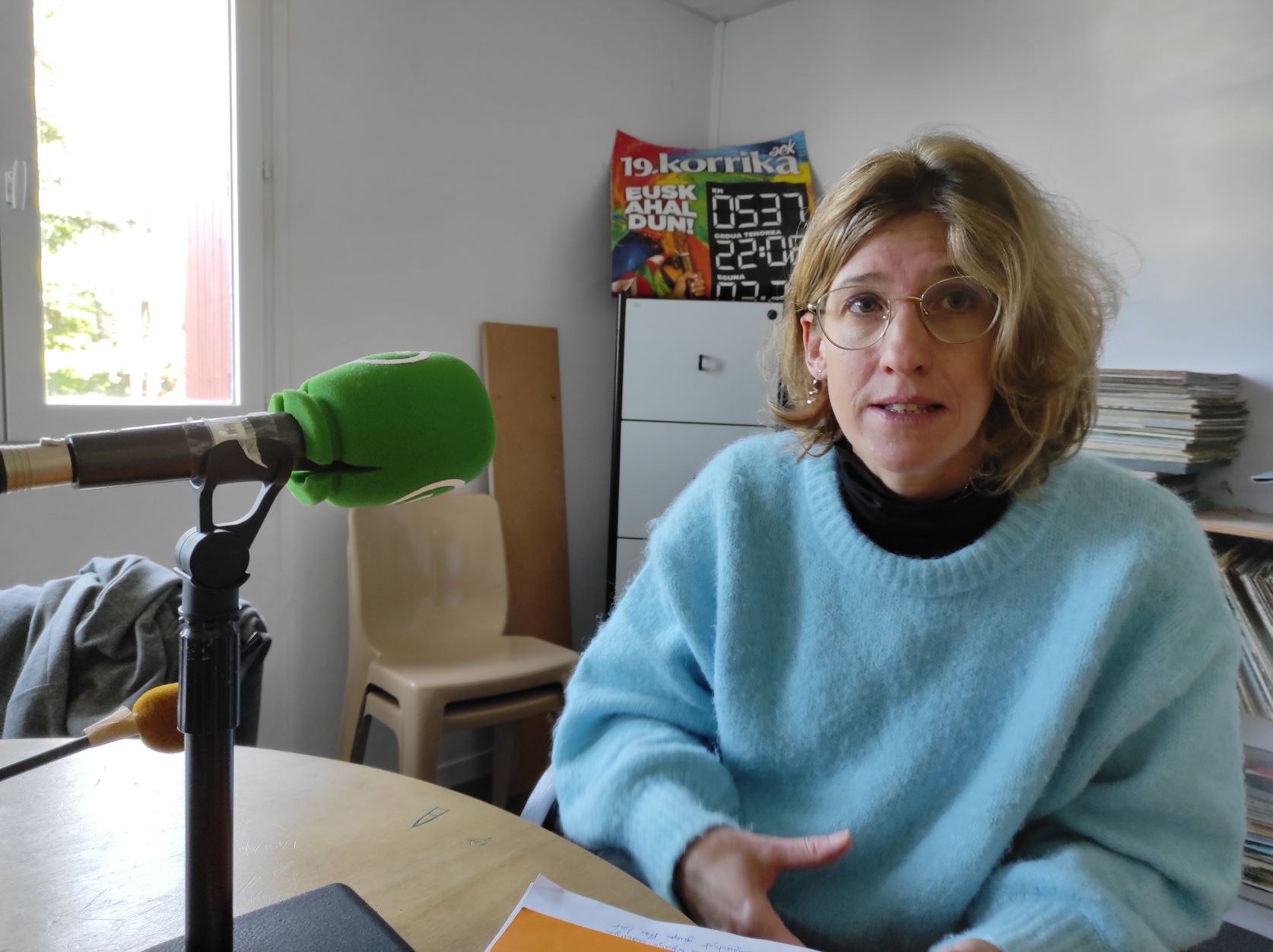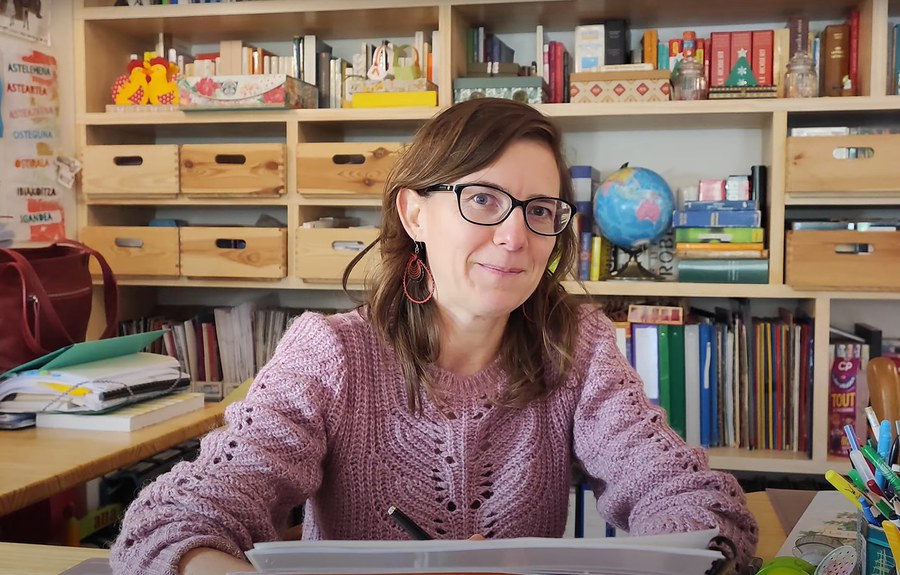The view of the Basque Country on the linguistic policy to be presented by the Basque College in April
- In February last year, the electorate of this new structure voted by a large majority in favour of the assumption of language policy by the Basque Colleges. The draft language policy will be presented on 14 April at the Euskalduna Palace in Bilbao. In addition, it is known that the institution will also present a declaration that gives the Basque knowledge. If the type of recognition is not specified, it can be said that it will be an important statement. From all this, Sebastien Castet, a member of the Basque Confederation, has spoken in detail about the structures dedicated to the Basque country in Iparralde.
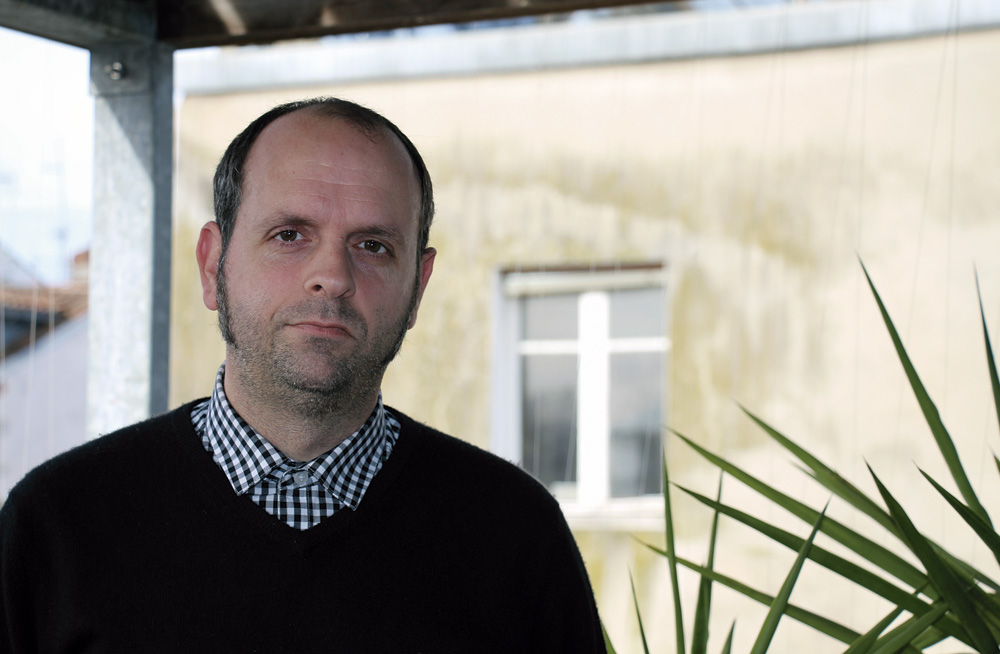
On 14 April we will have the opportunity to learn about the language policy developed by the Single Community of Iparralde. What does the Basque Football Confederation expect?
With the creation of the Basque College it was known that, in addition to the Public Entity of the Basque Language (EEP), it would be another actor in the development of public language policy in Iparralde. The Single Commonwealth of Iparralde brings together all the peoples of Ipar Euskal Herria, and we are clear that it must assume the leadership of the EEP to bring the language policy of Ipar Euskal Herria. It must have a courageous language policy. On the one hand, within the institution, in the services it offers, and on the other, encouraging the houses of the people to bet on the measures taken by the College in favor of the Basque Country. On the other hand, it should be remembered that within the PSE the Basque College has represented the union between the peoples and the Council of Elects. There, too, we think that it has to be a driving force and that it has to encourage the State, Aquitaine and the Department to adopt bold language policies. We must not forget that the Basque College holds the presidency of the EEP. We want leadership at language policy level.
What is the wording of language policy?
Ongoing. The agents of Euskalgintza have presented us with a first report and we have a month to make contributions. We do not know whether they will be taken into account, that will be decided by the electorate. Everything is being consolidated and what I can say without going into the project is what we expect and what we believe will be done: On the one hand, what has been done so far in ten schools of towns and cities will be generalized to the whole of Ipar Euskal Herria to pull language policy upwards. On the other hand, we would like linguistic policy to be a little higher. By area there are a number of obstacles that we believe we should take advantage of from the Commonwealth to overcome them.
How can this be done?
They cite the right to experimentation in the reform of French legislation. This right allows for the application to an area of what does not apply throughout French territory through a number of special authorisations.
“The right to experimentation has limits and we may be able to go further with the right to differentiation; we are defining that”
How do you want this right to be exercised?
By area, we ask the Community what more this right can bring to linguistic policy. There are two types of experimentation rights. Or an institution acquires more competences or, by maintaining them, obtains special permits to do several things. For example, as regards the financing of ikastolas, we know that under the Falloux law, local authorities cannot directly finance ikastolas. With this right to experimentation, those who wish should exercise the power to give the money to SEASKA. However, this right has the disadvantage that it is limited in time and widespread at the end or throughout French territory, or is abandoned. That's the problem. On the other hand, there is also the right to differentiation. At the moment, we are working on all the options, it is not yet a decision.
Despite having a right, you will need permission in Paris.
Yes. I believe that Paris makes a decree, specifying that in this region it intends, by experimentation, to do this or that. The right to experimentation has limits and perhaps we can go further with the right to differentiation. We're defining that.
The aim is to carry out language policy in all the competences of the Basque College. In particular, what will be necessary to make a positive assessment of this language policy?
It is true that the College and all the other institutions must do likewise within the framework of the legal framework currently in force. We know that this is extremely rigorous. Let us not forget that Article 75-1 of Parliament, which speaks of regional languages, has no legal effect. We know what the situation of the Basque people in Iparralde looks like. In this sense, the College does so with all its limitations. So what we want is to generalise what we have done so far and, if possible, go further through the right to experimentation or differentiation. But we also know that these steps to save the Basque Country and develop the Basque country with total normality will be scarce, precisely because the Basque country does not have an adequate status in the Basque Country.
The Basque College will take a more important step towards giving knowledge of the Basque Country. Different forms of knowledge are investigated.
Following the Jagon Days, the Royal Academy of the Basque Language and the Basque Confederation of the Basque Language, we published a common text in which we asked for the official status of the Basque Language. Subsequently, the college ordered a legal investigation, analyzing some concrete cases already adopted. For example, in Brittany, the region officially knows the Breton and the Welsh, saying that “they exist in Brittany”; the decision taken by the Eastern Pyrenees department says that “together with French, Catalan is the language of the department” and in Corsica they have “cooficiality” in the language policy project voted. There was no appeal against this last declaration, because the Assembly of Corsica did not say that it would be co-ordinable in Corsica, but asked the French Government about the creation of legal conditions for the official cooperation. Therefore, these three pathways are investigated.
"Why not make a decision like Corsica's? Why not ask the French Government to create the legal conditions that allow the co-ordinality of the Basque Country?”
What about these three options?
We do not know what formulation the Commonwealth will adopt, but if we take the most modest, that is, that next to French the Basque language is the language of Ipar Euskal Herria, even though we know that it will not bring legal consequences, that would have a rapid symbolic and political gesture. Why not take a resolution such as that of Corsica? Why not ask the French Government if it wants to create the legal conditions necessary to enable Basque co-operation? It would be a very rapid gesture, because I would like to say that the electorate is aware that in order for the Basque country to develop properly it needs the status of French. We are talking about cooperation and that the Basque country should be used and developed to the extent that French does, and that, of course, the Basque country should have legal value. Because the possession of a legal value would mean that citizens can use whatever language they want. It is not possible today. We know that if a house of the people does everything in Basque, it has to write the documents in French, because the French has an official. Cooperation would respect the language rights of the speakers, that is, the freedom to choose the language we want.

We know France, it is closely linked to the French language. Can you imagine that the legal conditions for getting to know the Basque country will change?
It is difficult and if we take Emmanuel Macron’s words back in Corsica, we can say that we are truly far away. But we know, and perhaps some elects are also becoming aware that if we want to save the Basque Country, we need cooficiality in Ipar Euskal Herria. For any small law it is difficult, in the best case it is discussed and refuted, and in the worst case it is not discussed. Yes, we are a long way from the cooperation of regional languages, but that is what we have to do is move it forward. We would like the local electorate to warn the French Government. Why, as I said, not putting myself in a resolution such as that of the corsicans?
Do you have the support of the parliamentarians of the French Parliament?
To be honest, we have not had any relationship with them. In recent years we have seen that they are in favour of the Basque Country, but are they willing to bring the demand for co-ordinality?
When drawing up language policy, the college is in contact with the agents of the Basque world.
Since the creation of the Single Community of Iparralde, linguistic policy has been working and contrasting with the agents of Basque cultural activity, and we very much appreciate that. It is a good thing that we work with those on the ground every day, because they are able to say in areas where the challenges lie and what the obstacles have to be overcome. We hope that, after the vote, the joint work will continue in order to follow up language policy more directly. That is what we ask the Community. At the moment, what they do seems to us to be very juicy. What they will then have to do is set targets year after year, quantified targets and what is clear, carry out sectoral evaluations, see what has been done, what has not been done and why. These sequences and evaluations are necessary and we hope that they will also be consulted in these steps.
A couple of years ago you set out the goal and the roadmap for 30% of the 2050 population to be vasco-speakers. With current developments, do you see a safer way to achieve this goal?
This document produced UNESCO data, indicating that 30 per cent of the population must speak in order not to lose a language. We did a prospection, but focusing only on teaching. It should be noted that teaching is not in the hands of the Basque School, it is National Education and is represented in the EEP. When we say that the school has to carry a motor job, it's also for: To exert pressure and encouragement on the State, the Department and the Region. As for the state, the most important driver is education.
The problem of the afrancession of the names of the places of Euskal Herria is not only due to the lack of consideration of the language in the signaling panels, but also to the execution of a decision on the domiciliation that was taken a few years ago.
Ultimately, the... [+]
Larunbatean ospatu dituzte Ttinka mikro haurtzaindegiaren bost urteak Lakarran. Baxe Nafarroko euskara hutsezko egitura bakarra da, Euskararen Erakunde Publikoaren B ziurtagiriduna.
On May 17, five Euskaltzales of Ipar and Hego Euskal Herria performed an action coinciding with the call made by the students of the Bernat Etxepare lyceum to mobilize in favor of the Basque. On the wall of the Baiona Subprefecture, a message was sent to the authorities of the... [+]
“Geldi euskara zapaltzea” lema berriz hartu du Euskal Herrian Euskaraz taldeak larunbatean egin duen prentsaurrekoan. Maiatzaren 17an, esaldi hori Baionako suprefeturan tindatzeaz akusaturik, irailaren 10ean epaituko dute Gorka Roca Torre.
Ikasturte honetan, lehen mailako ehun eskola elebidunetan 5.700 ikaslek ikasiko dute. Bigarren mailan hamasei kolegio eta lau lizeotan 1.600 dira. Zailtasun nagusia aurten ere kolegioan euskararen eta frantsesaren arteko oren parekotasuna erdiestea da.
Start of the summer. EHZ festival hangover (atx, headache). You want to breathe after a charged course. Flush the head. Reconnect key elements. Take some time with family, see old friends again and rest (a little) in the daily struggle. Really? !...
As a family, walk to the... [+]
Ms. Judge of the Bayona Court of Justice dismisses:
In March, I was judged by some Euskaltzales in Baiona for taking part in some of the actions we have taken to denounce the unfair treatment suffered by the Basque authorities in the French state. At the beginning of the trial,... [+]
Maddi Kintanak Baiona, Angelu eta Miarritzeko gazteen euskara aztertu du bere tesian. Hitz berriak sortzen dituzte baina baita hitzak beste hizkuntzetatik hartzen ere, besteak beste, interneten eraginez.
"Euskara eta euskal literatura, programaketatik ikasgelara" jardunaldian parte hartu zuen Katixa Dolhare Zaldunbidek. Seaskak eta UEUk antolatu Udako Ikastaroen barne. Bere problematikak horiek ziren: Zer leku du literaturak hezkuntza programetan eta nola landu euskal... [+]









